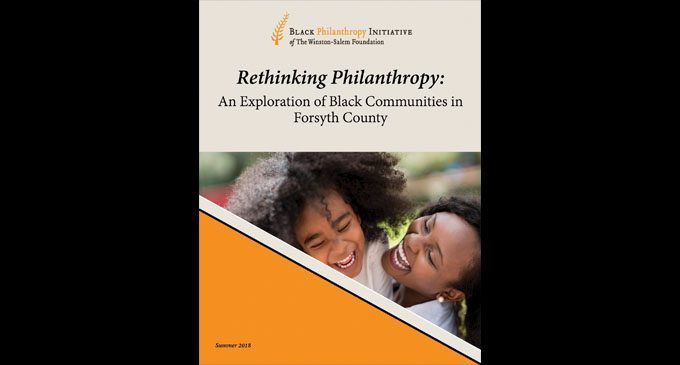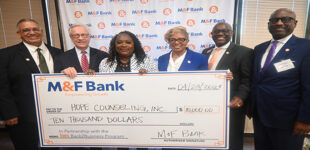BPI Report details inequalities in local black communities
"Rethinking Philanthropy: An Exploration of Black Communities" was a study commissioned by BPI.

The Black Philanthropy Initiative’s (BPI) recent report on local black communities found many inequalities in Forsyth County.
“Rethinking Philanthropy: An Exploration of Black Communities” was a study commissioned by BPI, which is a Winston-Salem Foundation initiative that promotes philanthropy in the black community. It’ll be among the things discussed at BPI’s annual fundraiser at the Milton Rhodes Center at 6 p.m. tonight, Oct. 11. BPI has taken a break from awarding grants this year to focus on the study and will use its findings to direct its grant-making starting next year.
The report found across the board inequalities in education, income, employment, and other areas.
Among its sobering findings:
“East Winston has a higher percentage of blacks, lower median household income, lower education, and greater poverty than the county and the state. These residents have inadequate access to essential goods and services such as childcare, grocery stores, schools, and low access to jobs – which consequently limits opportunities to escape poverty and achieve a more prosperous future.
“Today, you will find only three of the 20 grocery stores in Winston-Salem on the east side of Highway 52, two of the 11 public libraries, one fully-functioning medical clinic, two of 43 elementary schools, two of 17 high schools and one of six colleges city-wide.”
It cites the findings of the Winston-Salem Urban League’s State of Black Winston-Salem report that finds black residents in Forsyth County earn 62 cents for every dollar earned by their white counterparts. According to a 2017 Forsyth Futures report, 30 percent of black county residents live in poverty. Approximately 17 percent of blacks in the county’s labor force are unemployed.
“It’s about how the city has grown and us not really experiencing the growth equally,” said BPI Director Sabrina Slade.
The report’s recommendations for funders include reviewing internal policies that may create philanthropic redlining, which is when black-led organizations are overlooked for funding. It also recommends devoting more funds to black-led organizations, supporting the unique needs of program participants and teaching skills that’ll let residents address issues in their own communities.
Slade said that funding local nonprofits is just one component of a larger effort that it’ll take to bridge gaps in the community.
“These are recommendations through the lens of philanthropy, but philanthropy alone won’t solve these issues. You cannot program your way out of poverty,” said Slade.
“You cannot program your way out of systemic racism.”
Slade said BPI will be discussing this week where it will focus its grants. One possibility might be education, particularly higher education. Black students from low-income families are more likely to have to work, take out sizable loans and decrease their course load due to tuition cost. They’re also more likely to graduate with higher student loan debt that could potentially impact their finances for many years to come.
The report can be viewed online at www.wsfoundation.org/BPI.















